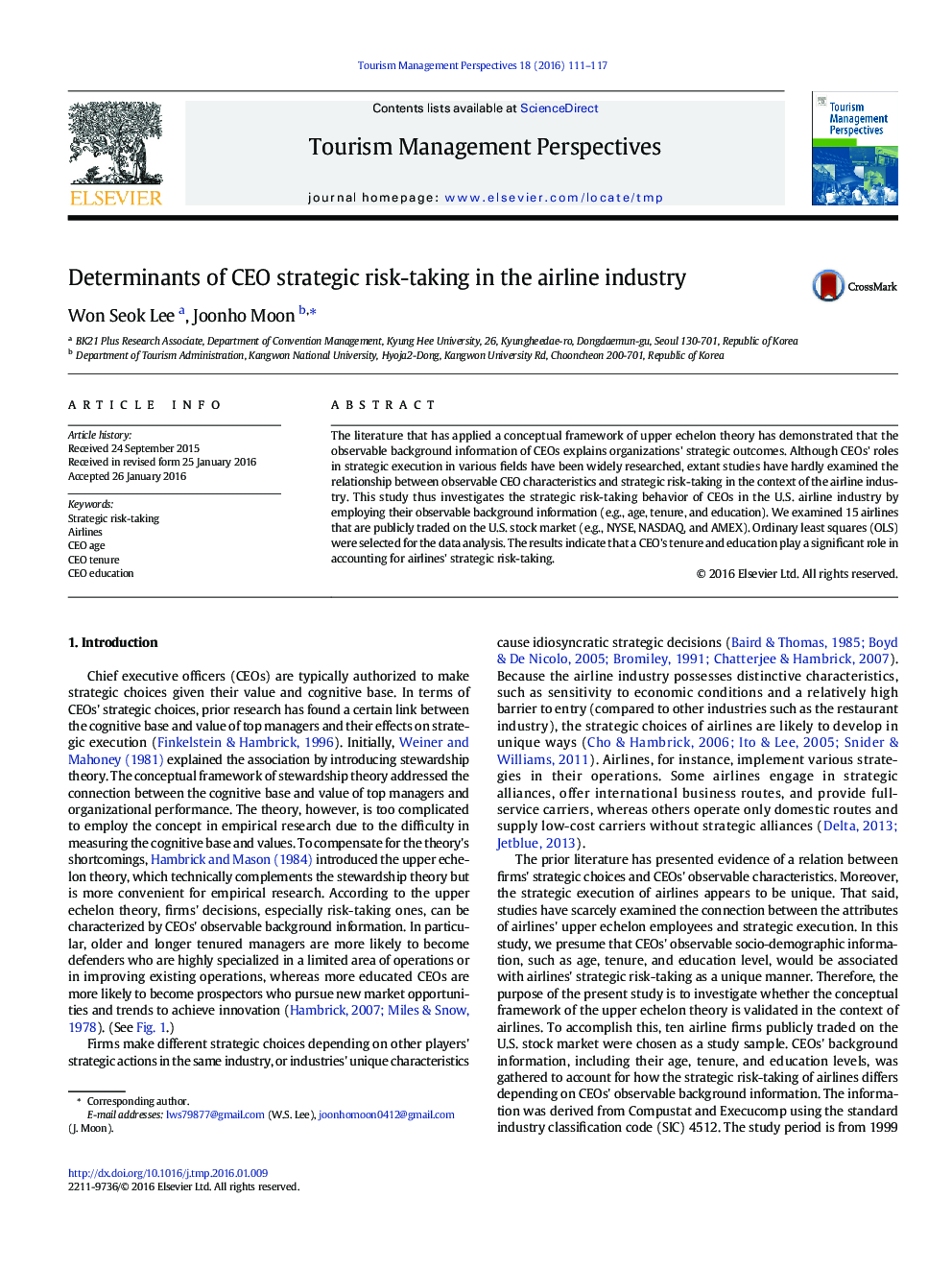| Article ID | Journal | Published Year | Pages | File Type |
|---|---|---|---|---|
| 1013590 | Tourism Management Perspectives | 2016 | 7 Pages |
•This study expanded the area of upper echelon theory into airline industry.•Tenure of CEOs and formal education level of CEOs are critical attributes to account for strategic risk-taking of airlines.•Tenure is negatively associated with strategic risk-taking of airlines.•Education is positively associated with strategic risk-taking of airlines.
The literature that has applied a conceptual framework of upper echelon theory has demonstrated that the observable background information of CEOs explains organizations' strategic outcomes. Although CEOs' roles in strategic execution in various fields have been widely researched, extant studies have hardly examined the relationship between observable CEO characteristics and strategic risk-taking in the context of the airline industry. This study thus investigates the strategic risk-taking behavior of CEOs in the U.S. airline industry by employing their observable background information (e.g., age, tenure, and education). We examined 15 airlines that are publicly traded on the U.S. stock market (e.g., NYSE, NASDAQ, and AMEX). Ordinary least squares (OLS) were selected for the data analysis. The results indicate that a CEO's tenure and education play a significant role in accounting for airlines' strategic risk-taking.
